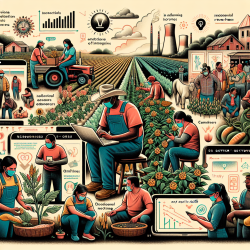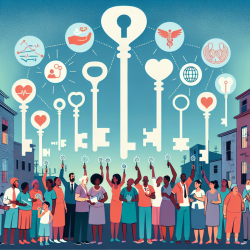Introduction
The SARS-CoV-2 pandemic has highlighted and exacerbated existing healthcare disparities, particularly among marginalized communities such as Latinx seasonal farmworkers. These essential workers face unique challenges that increase their vulnerability to the virus, including crowded living conditions, isolated social networks, and exploitative work environments. A recent commentary published in the International Journal of Environmental Research and Public Health suggests that social network approaches can mitigate these disparities. As practitioners, we can leverage these insights to enhance our service delivery and advocacy efforts.
Understanding the Challenges
Latinx seasonal farmworkers experience numerous barriers to healthcare access, such as language and cultural barriers, lack of insurance, and fear of deportation. These factors, compounded by the Latinx cultural value of fatalism, often lead to delayed treatment and severe health outcomes. The commentary identifies key challenges, including:
- Immigration Stress: Fear of discrimination and deportation deters many from seeking testing and vaccination.
- Lack of Social Support: Disrupted family structures and community ties increase isolation and stress.
- Mistreatment at Work: Exploitative conditions force workers to choose between health and livelihood.
- Mental Health and Substance Use Disorders: These issues are prevalent and can hinder healthcare access and adherence.
Implementing Social Network Approaches
Social network approaches, as demonstrated in the PROGRESO study, offer a promising strategy to address these challenges. By integrating cultural values such as personalismo and collectivism, practitioners can foster trust and engagement within the community. Key strategies include:
- Community-Based Participatory Research: Engage community leaders to disseminate information and encourage participation in health programs.
- Link-Tracing Recruitment: Utilize social networks to recruit participants for interventions, ensuring a culturally sensitive approach.
- Network Visualization: Employ social network mapping to enhance contact tracing and identify key influencers within the community.
Encouraging Further Research and Practice
Practitioners are encouraged to delve deeper into social network methodologies and consider their application in other areas of public health. Understanding the dynamics of social networks can inform the development of targeted interventions that resonate with the cultural and social realities of marginalized communities.
To read the original research paper, please follow this link: Why Re-Invent the Wheel? Social Network Approaches Can Be Used to Mitigate SARS-CoV-2 Related Disparities in Latinx Seasonal Farmworkers.










